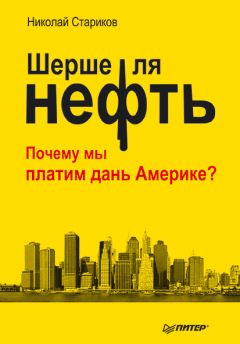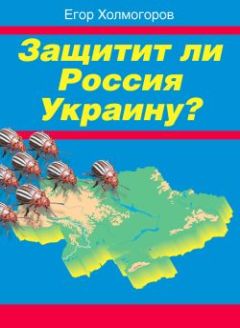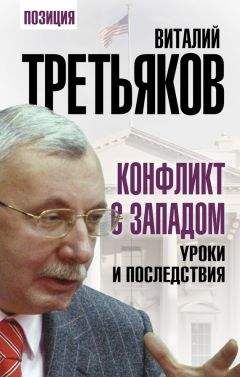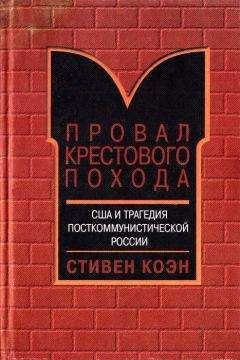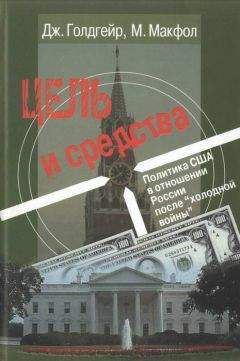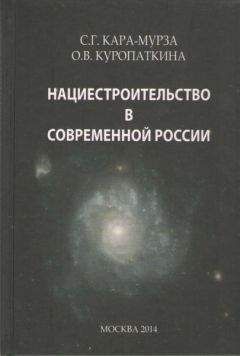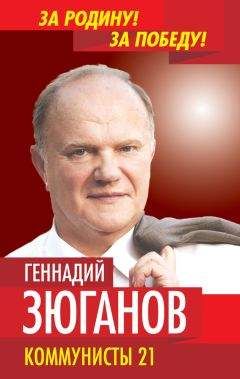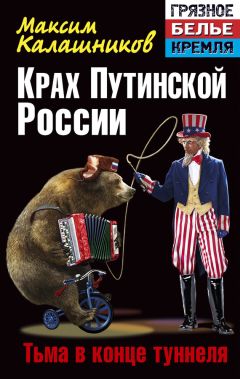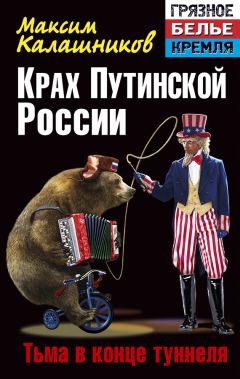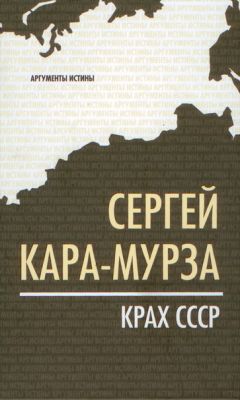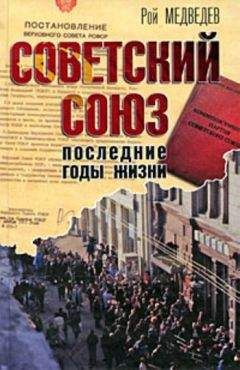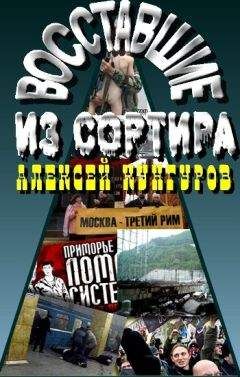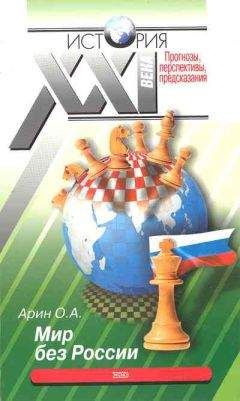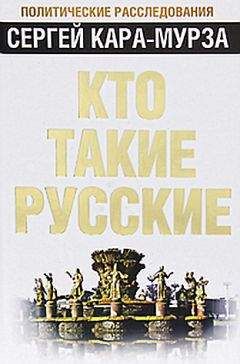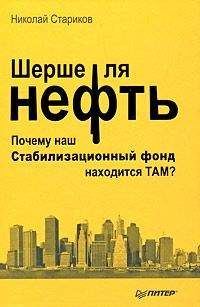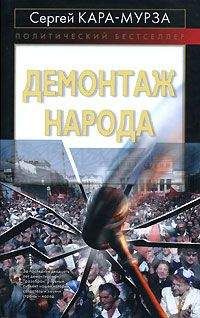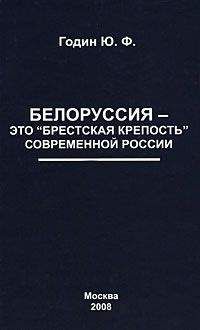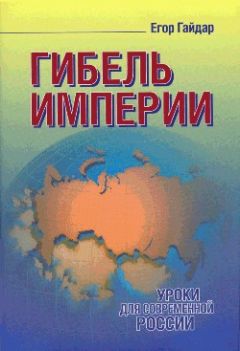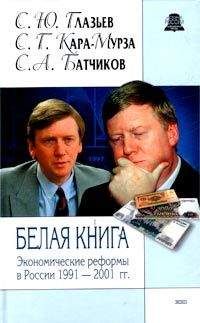Егор Гайдар - Гибель империи. Уроки для современной России

Все авторские права соблюдены. Напишите нам, если Вы не согласны.
Описание книги "Гибель империи. Уроки для современной России"
Описание и краткое содержание "Гибель империи. Уроки для современной России" читать бесплатно онлайн.
Книга посвящена проблемам, с которыми сталкиваются авторитарные режимы в полиэтнических государствах, чья экономика в значительной степени зависит от непредсказуемых колебаний цен на топливно-энергетические ресурсы. Эта проблема актуальна для современной России, и автор объясняет, какие ошибки, допущенные Советским Союзом, не следовало бы повторять. Уникальность же книги в том, что Егор Гайдар впервые наглядно показывает, каким образом политика коллективизации, разорившая наше сельское хозяйство, предопределила через шестьдесят с небольшим лет ускоренный крах советского режима, который де-факто стал к тому времени банкротом. Каково было реальное экономическое положение внешне могучей сверхдержавы, был ли распад СССР абсолютно неминуемым, можно ли было произвести демонтаж советской системы как-то иначе и почему в России был невозможен китайский или латиноамериканский путь преобразований – ответы на эти вопросы вы найдете в “Гибели империи”.
149
Kennedy P. The Rise and Fall of the Great Powers. Economic Change and Military Conflict from 1500 to 2000. N. Y: Random House, 1987. P. 55.
150
Казнь ненавидимого многими в Испании Родриго де Кальдерона в 1621 г. – характерный этому пример. (См.: Elliott J. Н. Imperial Spain, 1469-1/16. L.: Edward Arnold Publishers LTD., 1965.)
151
Elliott J. H. Spain and Its World, 1500–1700. Selected Essays. New Haven; L.: Yale University Press, 1989. P. 25.
152
Trevor-Roper H. The Crisis of the Seventeenth Century. N. Y.: Liberty Fund,
1967. P 51.
153
World Development Indicators 2000. Washington, DC: World Bank, 2000.
154
Об определении богатых ресурсами стран см.: Sachs J. D., Warner А. М. Economic Convergence and Economic Policy. NBER Working Paper № 5039.1995; Wood A., Berge K. Exporting Manufactures: Human Resources, Natural Resources and Trade Policy // Journal of Development Studies. 1997. Vol. 34 (1). P. 35–59; Gylfason Т., Herbertsson Т. Т., Zoega G. A Mixed Blessing: Natural Resources and Economic Growth // Macroeconomic Dynamics. 1999. Vol. 3. P. 204–225; Syrquin M., Chenery H.B. Patterns of Development, 1950 to 1983. World Bank Discussion Paper № 41. Washington: World Bank, 1989.
155
О проблемах, с которыми сталкиваются богатые ресурсами страны в обеспечении устойчивого экономического развития, см.: Gelb А. Н. Windfall Gains: Blessing or Curse? N. Y: Oxford University Press, 1988; Sachs J. D., Warner A. M. Natural Resource Abundance and Economic Growth. NBER Working Paper № 5398. 1995; Sachs J. D., Warner A.M. The Big Push, Natural Resource Booms and Growth // Journal of Development Economics. 1999. Vol. 59. P. 43–76; Gylfason Т., Herbertsson Т. Т., Zoega G. A Mixed Blessing: Natural Resources and Economic Growth // Macroeconomic Dynamics. 1999. Vol. 3. P. 204–225; Ranis G. The Political Economy of Development Policy Change / Meier G.M. (ed.). Politics and Policy Making in Developing Countries: Perspectives on the New Political Economy. San Francisco: ICS Press, 1991; Lal D., Myint H. The Political Economy of Poverty, Equity and Growth. Oxford: Clarendon Press, 1996.
156
Sala-i-Martin X., Subramanian A. Addressing the Natural Resource Curse: An Illustration From Nigeria. NBER Working Paper № 9804. June 2003. P 4.
157
Есть авторы, доказывающие, что институциональная слабость – характерная черта многих богатых ресурсами стран – является важнейшим фактором, замедляющим их развитие. (См.: Karl Т. L. The Paradox of Plenty: Oil Booms and Petro-States. Berkeley: University of California Press, 1997.)
158
О проблемах, стоящих перед странами, экономика которых зависит от конъюнктуры сырьевых рынков, см.: Cardenas М., Partow 2. Oil, Coffee and Dynamic Commons Problem in Colombia. Inter-American Development Bank Office of the Chief Economist Research Network Document R-335.1998.
159
Как правило, в богатых ресурсами странах уровень поступлений от налогов, не связанных с перераспределением ренты, ниже, чем в государствах того же уровня развития, но обделенных ресурсами. (О связи низкого уровня общих налогов с ресурсным богатством см.: Karl Т. L. The Paradox of Plenty: Oil Booms and Petro-States. Berkeley: University of California Press, 1997.) В Саудовской Аравии, крупнейшей нефтедобывающей стране мира, к середине 1980-х гг. более 90 % доходов бюджета было связано с добычей и экспортом нефти. (См.: Kingdom of Saudi Arabia: Achievements of the Development Plans 1970–1986. Riyadh: Ministry of Planning Press, 1986.) Важную роль в политическом и экономическом развитии богатых ресурсами стран играет то, в какой степени государство имеет возможность концентрировать в своих руках связанные с этими ресурсами доходы. П. Сутела обращал внимание на то, что ресурсное богатство Норвегии Средних веков – обильные запасы трески – сосредоточить в распоряжении государства было трудно. Отсюда отсутствие проблем, связанных с борьбой за перераспределение рентных доходов. (См.: Сутела П. Это сладкое слово – конкурентоспособность // Хелантера А., Оллус С.-Э. Почему Россия не Финляндия: Сравнительный анализ конкурентоспособности. М.: ИЭПГТ, 2004.)
160
North D. С. Institutions, Institutional Change and Economic Performance. Cambridge: Cambridge University Press, 1990. Индонезийская нефтяная компания, финансировавшая Вооруженные силы страны, проводя непрозрачные операции, – наглядная иллюстрация того, как действуют добывающие сырье предприятия в странах, не имеющих устойчивой традиции демократических институтов. (См.: McDonald Н. Suharto's Indonesia. Honolulu: University of Hawaii Press, 1981.)
161
О влиянии ресурсного богатства на качество национальных институтов и влиянии этого фактора на низкие темпы роста богатых ресурсами стран см.: Sala-i-Martin X., Subramanian К. Addressing the Natural Resource Curse: An Illustration From Nigeria. NBER Working Paper № 9804. June 2003; Mehlum Н., Moene К. О., Torvik R. Institutions and the Resource Curse || Economic Journal. 2005. Vol. 116. N 508. E 1-20; Bulte E. H., Damania R., Deacon R. T. Resource Abundance, Poverty and Development. World Development 2005. http://www.econ.ucsb. edu/papers/wp2i-03.pdf.
162
Салтыков-Щедрин M. E. Собр. соч. В 10 т. М.: Изд-во “Правда”, 1988. Т. 7. “За рубежом”. С. 19.
163
Leamer Е. Е., Maul Н., Rodriguez S., Schott Р. К. Does Natural Resource Abundance Increase Latin American Income Inequality f // Journal of Development Economics. 1999. Vol. 59 (1). P. 3–42.
164
Williamson J. G. Growth, Distribution and Demography: Some Lessons from History // Explorations in Economic History. 1998. № 34 (3). P 241–271.
165
Krueger A. Foreign Trade Regimes and Economic Development: Liberalization Attempts and Consequences. N. Y.: Columbia University Press, 1978. О влиянии борьбы за распределение ренты на распространение коррупции в богатых ресурсами странах см. также: Tornell A., Lane P. Voracity and Growth // American Economic Review. 1999. Vol. 89. P. 22–46; Mauro P. Corruption and Growth II Quarterly Journal of Economics. 1995. Vol. 90. P. 681–712; Leite C., We 1 dm ANN M. Does Mother Nature Corrupt? Natural Resources, Corruption and Economic Growth. IMF Working Paper WP/99/85,1999.
166
Collier P., Hoffler A. Greed and Grievance in African Civil Wars. L.: Oxford University Press, 2004.
167
Gylfason T. Natural resources; education and economic development // European Economic Review. 2001. Vol. 45. P. 851.
168
May В. Уроки Испанской империи, или Ловушки ресурсного изобилия // Россия в глобальной политике. 2005. № 1.
169
Sachs J., Warner A. M. Natural Resource Abundance and Economic Growth // Mayer J., Chambers B., Farooq A. (eds.). Development Policies in Natural Resource Economies. Cheltenham – Northampton: Edward Elgar, 1999. P 26.
170
Corden M., Neary J. P. Booming Sector and Dutch Disease Economics: A Survey // Economic Journal. 1982. December. Vol. 92. P 826–844; Kamas L. Dutch Disease Economics and the Colombian Export Boom // World Development. 1986. September; Davies G. A. Learning to Love the Dutch Disease: Evidence from the Mineral Economies // World Development. 1995. Vol. 23 (10). P 1765–1779; Gylfason T. Lessons from the Dutch Disease: Causes, Treatment and Cures. Institute of Economic Studies. Working Paper Series № 01/06. August 2001; Krugman P. The Narrow Moving Band, the Dutch Disease and the Competitive Consequences of MRS. Thatcher: Notes on Trade in the Presence of Scale Economies // Journal of Development Economics. 1987. Vol. 27. P 41–55; Moiseev A. Analysis of Influence of the “Dutch Disease” and Taxation on Economic Welfare. Working Paper BSP/99/030.1999; Struthers J. J. Nigerian Oil and Exchange Rates: Indicators of “Dutch Disease” // Development and Change. 1990. Vol. 21 (2). P 309–341; Jazayeri A. Economic Adjustment in Oil-based Economies. Aldershot: Avebury, 1988.
171
Для России эти проблемы особенно остры. В отличие от арабских государств Персидского залива наша страна индустриализирована. При этом обрабатывающая промышленность не может похвастаться высокой конкурентоспособностью. Отсюда значимость проблем, связанных с феноменом “голландской болезни”, для России. (См.: Кадочников П., Синельников-Мурылев С., Четвериков С. Импортозамещение в Российской Федерации в 1998–2002 гг. М.: ИЭПП, 2003.)
172
Sachs J. D., Warner A.M. The Curse of Natural Resources // European Economic Review. 2001. Vol. 45. P. 827–838.
173
Gylfason Т., Herbertsson Т. Т., Zoega G. A Mixed Blessing: Natural Resources and Economic Growth // Macroeconomic Dynamics. 1999. Vol. 3. P 204–225; Gylfason T. Natural Resources, Education and Economic Development. Paper presented at the 15th Annual Congress of the European Economic Association. Bolzano. August-September 2000.
174
Gylfason T. Natural Resources and Economic Growth: A Nordic Perspective on the Dutch Disease. WIDER Working Papers № 167. October 1999.
175
PrebischR. Commercial Policy in the Underdeveloped Countries // American Economic Review. 1949. Vol. 49. P 251–273; Prebisch R. International Trade and Payments in an Era of Coexistence: Commercial Policy in Underdeveloped Countries // The American Economic Review. 1959. May. Vol. 49. Issue 2. Papers and Proceedings of the Seventy-first Annual Meeting of the American Economic Association. P 251–273; Economic Survey of Latin America and the Caribbean. Economic Commission for Latin America and the Caribbean. N. Y: United Nations, 1968; La mano de obra у el desarrollo Economico de America Latina en los ultimos anos. Economic Commission for Latin America. N. Y: United Nations, 1964.
176
Cashin P., McDermott C. J., Scott A. The Long-Ran Behavior of Commodity Prices: Small Trends and Big Variability. IMF Working Paper, 2001.
177
Samuels on P. A. Lessons from the Current Economic Expansion // The American Economic Review. 1974. Vol. 64 (2). P. 75–76.
178
Skeet I. OPEC: Twenty-Five Years of Prices and Politics. Cambridge: Cambridge University Press, 1988. P 195. О специфике сырьевых отраслей, осложняющей сокращение добычи в условиях неблагоприятной конъюнктуры, см.: Dowling Е.Т., Hilton F. G. Oil in the 1980s: An OECD Perspective // Shojai S., Katz B. S. (eds.). The Oil Market in the 1980s: A Decade of Decline. New York: Praeger, 1992. P 77. О соотношении капитальных и текущих расходов, трудностях сокращения производства в условиях падения глобального спроса на примере добычи меди см.: Mikesell R. F. The World Copper Industry. Structure and Economic Analysis. Baltimore; L.: Published for Resources for the Future by The Johns Hopkins University Press, 1957.
179
Pritchett L. Patterns of Economic Growth: Hills, Plateaus, Mountains, and Plains. Policy Research Working Paper Series № 1947. 1998; Mabro R. OPEC Behavior 1960–1998: A Review of the Literature // Journal of Energy Literature. 1998. June. Vol. 4 (1). P. 3–27.
Подписывайтесь на наши страницы в социальных сетях.
Будьте в курсе последних книжных новинок, комментируйте, обсуждайте. Мы ждём Вас!
Похожие книги на "Гибель империи. Уроки для современной России"
Книги похожие на "Гибель империи. Уроки для современной России" читать онлайн или скачать бесплатно полные версии.
Мы рекомендуем Вам зарегистрироваться либо войти на сайт под своим именем.
Отзывы о "Егор Гайдар - Гибель империи. Уроки для современной России"
Отзывы читателей о книге "Гибель империи. Уроки для современной России", комментарии и мнения людей о произведении.






